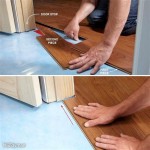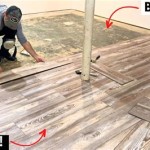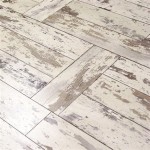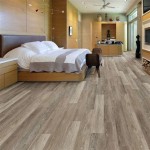Steel Checker Plate Flooring: A Guide to Its Essential Aspects
Steel checker plate flooring is a versatile and durable option for industrial, commercial, and even residential applications. It is renowned for its strength, longevity, and slip-resistance. Understanding its essential aspects can aid in making informed decisions when selecting and installing this type of flooring.
Types of Steel Checker Plate Flooring
Steel checker plate flooring is available in various types based on its pattern and thickness. The most common patterns include:
- Diamond
- Lug
- Tear drop
The thickness typically ranges from 1/4 inch (6.4 mm) to 1 inch (25.4 mm), offering varying levels of load-bearing capacity.
Slip Resistance
Steel checker plate flooring is known for its exceptional slip resistance. Its raised pattern ensures secure footing even in wet or oily conditions. This makes it an ideal choice for areas where traction is critical, such as industrial workspaces, ramps, and outdoor walkways.
Durability and Strength
Steel checker plate flooring is highly durable and resistant to wear and tear. It can withstand heavy foot traffic, machinery, and other industrial demands. The checker pattern disperses the weight evenly, preventing excessive localized stress and enhancing its longevity.
Corrosion Resistance
Steel checker plate flooring is typically galvanized or painted to protect it from corrosion. This treatment inhibits the formation of rust and extends its lifespan, especially in outdoor applications where moisture exposure is prevalent.
Applications
The versatility of steel checker plate flooring makes it suitable for a wide range of applications:
- Industrial environments: Factories, warehouses, assembly lines
- Commercial spaces: Shopping malls, restaurants, lobbies
- Outdoor areas: Ramps, walkways, loading docks
- Automotive industry: Vehicle manufacturing, maintenance shops
Installation Considerations
The installation of steel checker plate flooring should be carried out by qualified professionals. Proper preparation of the subfloor and secure fastening are crucial to ensure the stability and longevity of the flooring.
Conclusion
Steel checker plate flooring offers a combination of durability, slip resistance, corrosion resistance, and versatility. Understanding its essential aspects aids in selecting the appropriate type and thickness for specific applications. Its ability to endure demanding conditions and enhance safety makes it an excellent choice for industrial, commercial, and even residential settings where performance and longevity are paramount.

Mild Steel Floor Plates

Floor Plate Checker Steel Size 1 2x1 8 Thickness 2 1mm Melsteel

Steel Floor Plate Impact

304 Stainless Steel Floor Plate Coremark Metals

1 4401 And 4404 Checker Plate Stainless Steel Tiasco

Hot Rolled Steel Checd Plates With Rhombic Corrugation On Sheets Laser Cut

Hot Rolled Steel Floor Plate Coremark Metals

2 1mm Floor Plate

Floor Plate Checker Steel Size 1 2x1 8 Thickness 2 1mm Melsteel

Checd Plates For Walkway Trailer Decks Platform Stair Treads
Related Posts








